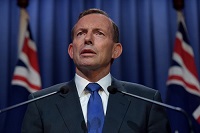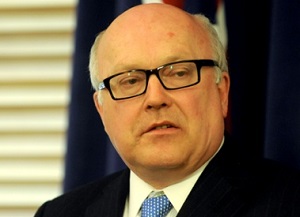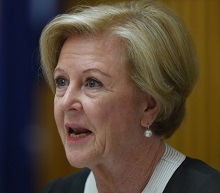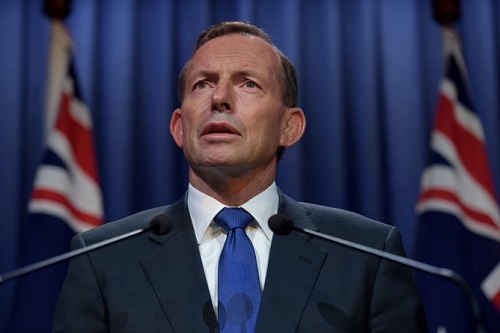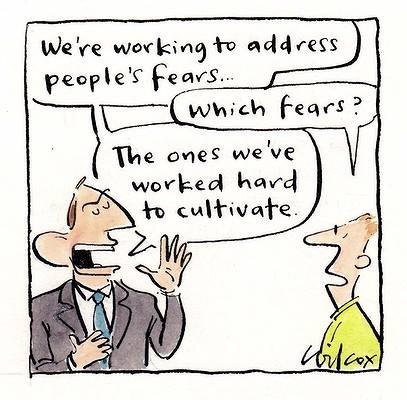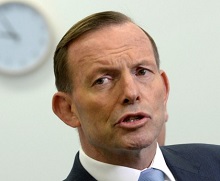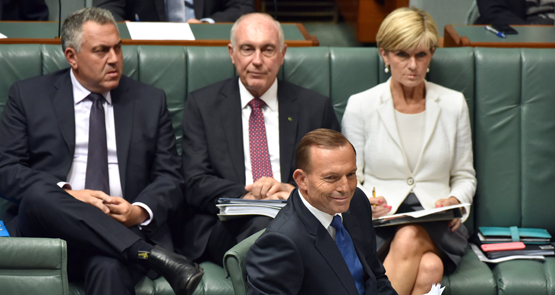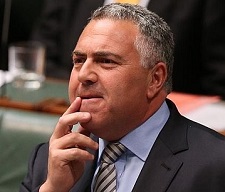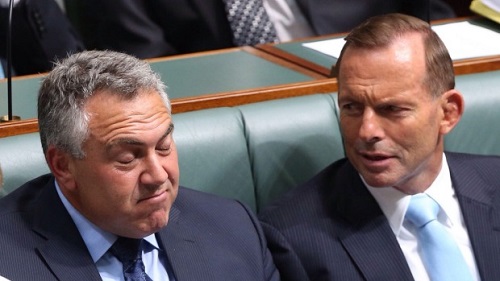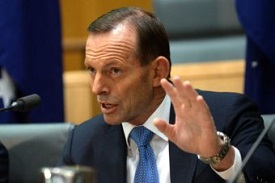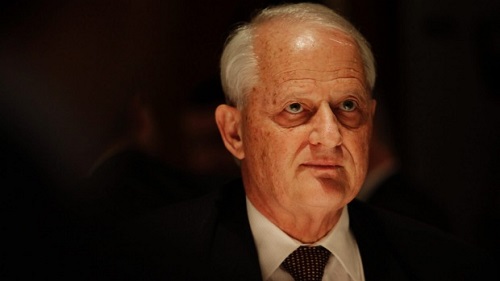Mark Kenny at the SMH believes the Fairfax-Ipsos poll has thrown Tony Abbott’s leadership a lifeline:
Australian voters have thrown Tony Abbott a lifeline just as his internal opponents were shaping to dump him, with a Fairfax-Ipsos poll confirming a pro-government shift is under way.
In a result set to strengthen the Prime Minister’s hand in the short term, the Abbott government has staged an unlikely recovery and, while still trailing, is now within striking distance of overhauling the ALP lead at 49-51.
Coalition pollies seem to believe it and that’s what matters. Abbott is certainly acting like chief rooster in the chook yard again.
I’m inclined to think that Abbott is safe from his own mob until budget time, but perhaps not yet safe from voters’ ire.
Firstly, the Ipsos poll is new on the block, replacing Nielsen as Fairfax’s pollster. Adrian Beaumont says:
An important qualification with Ipsos is that all four of its polls, conducted since it replaced Nielsen as Fairfax’s pollster, have shown a clear lean to the Coalition relative to other pollsters. As a result, this poll should be interpreted as being at least 52-48 to Labor.
Peter Hartcher thinks the poll shows Abbott as a dead man walking. Fully 72% of voters say Abbott does not have the confidence of his own party. Only 21% say he does. Sportingbet says Abbott has a 75% chance of being removed from the leadership before the next election.
Indeed the ‘attribute’ section of the poll is simply awful for Abbott. Go here and scroll down.
Voters were asked whether specific attributes applied to Abbott and Turnbull. Only 39% thought Abbott competent (Turnbull 74%). 36% thought him trustworthy to Turnbull’s 55%. Only 33% rated him a strong leader to Turnbull’s 60%.
Abbott’s ratings are all negative, and all at historical lows.
This week’s Essential Report has Labor ahead TPP 53-47, the same as last week and a slight improvement on two and four weeks ago, which both came out at 54-46.
Peter Lewis and Jackie Woods of Essential Media Communications attempt some analysis. They say that some issues just don’t cut through. For example:
for all the bluster, the controversy around the Attorney-General and the Human Rights Commission has not captured the attention of the general public. When asked to pass judgment on the performance of the Commission, 44 per cent concede they don’t know enough to form an opinion. While it has dominated the national headlines, the reality is that most people just don’t follow politics that closely.
National security, however, is an issue that people think matters and pay some attention to. Three-quarters (75%) think the threat of terrorism happening in Australia has increased over the last few years – up from 57% in September 2014.
Newspoll tells us that 51% think Abbott is best at handling the nation’s security, whereas 31% go for Shorten. Last week Abbott stood in front of six flags to tell us about strengthened home security measures. This week he found eight flags to backdrop his announcement of 300 troops on the ground in Iraq.
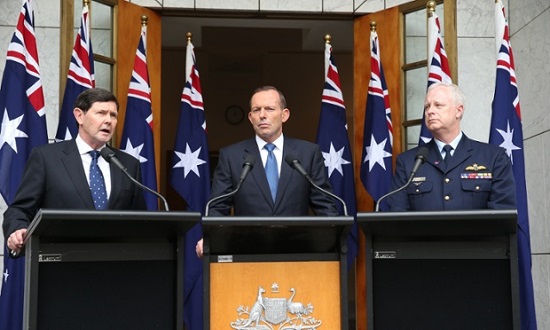
Lewis and Woods say, however, that Abbott’s handling of security matters is divisive. What he is doing may appeal to the Coalition base, but may not get him over the line.
To be frank, I’ve been amazed at how Abbott appears to have extricated himself, for now at least, from his near death experience. Where the story goes next, I think no-one can tell.

